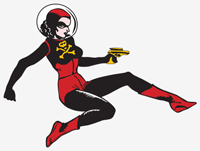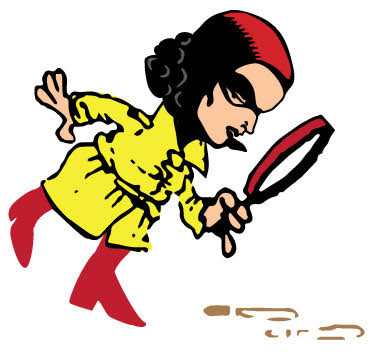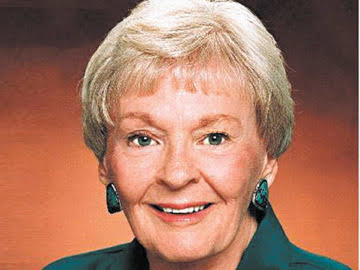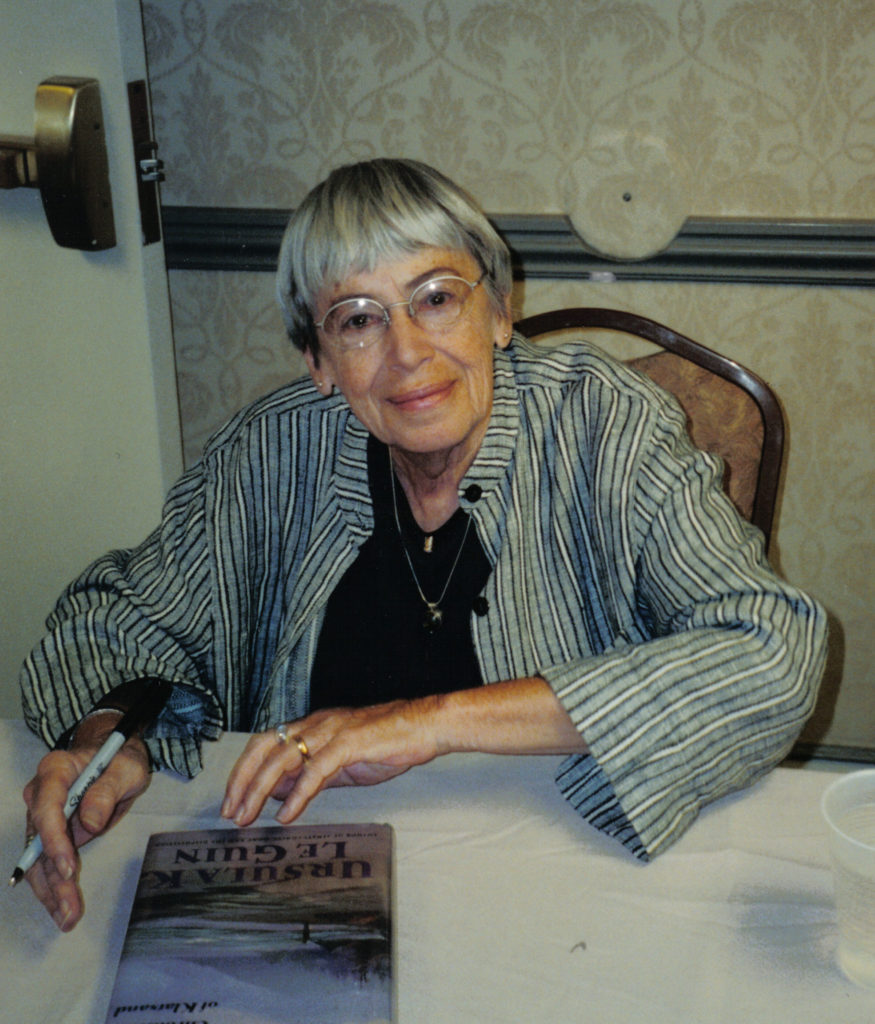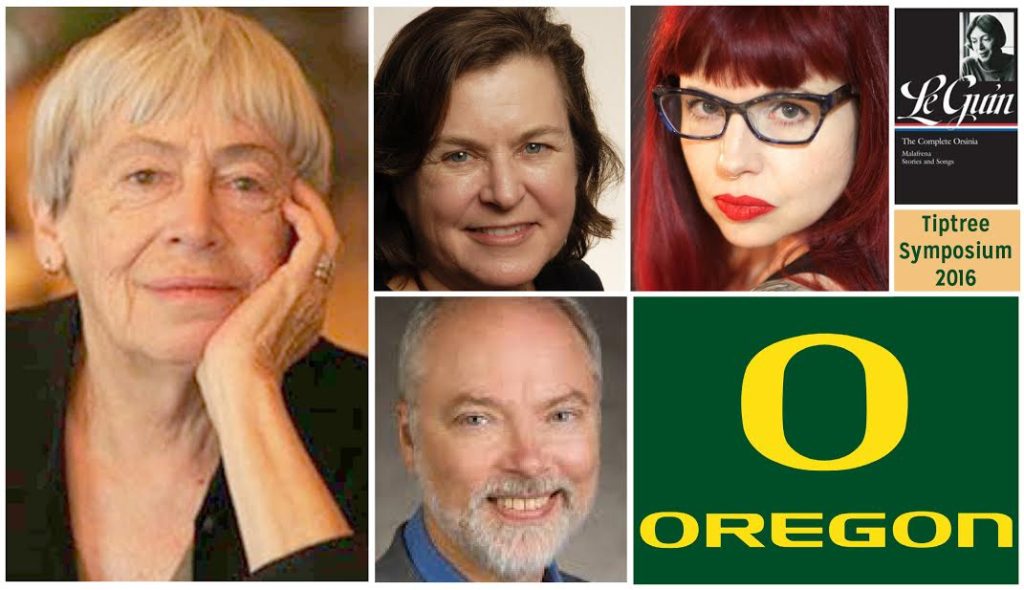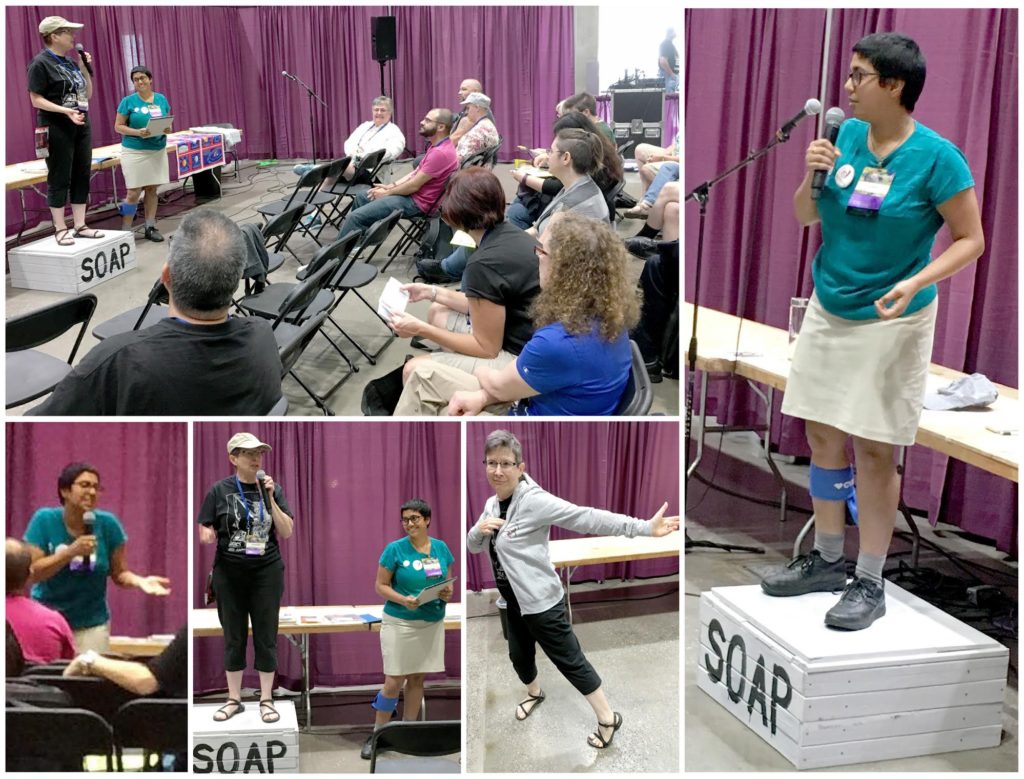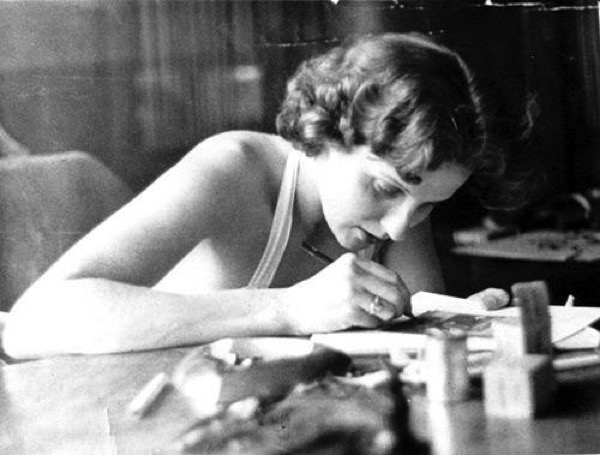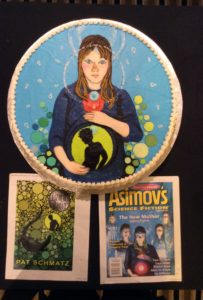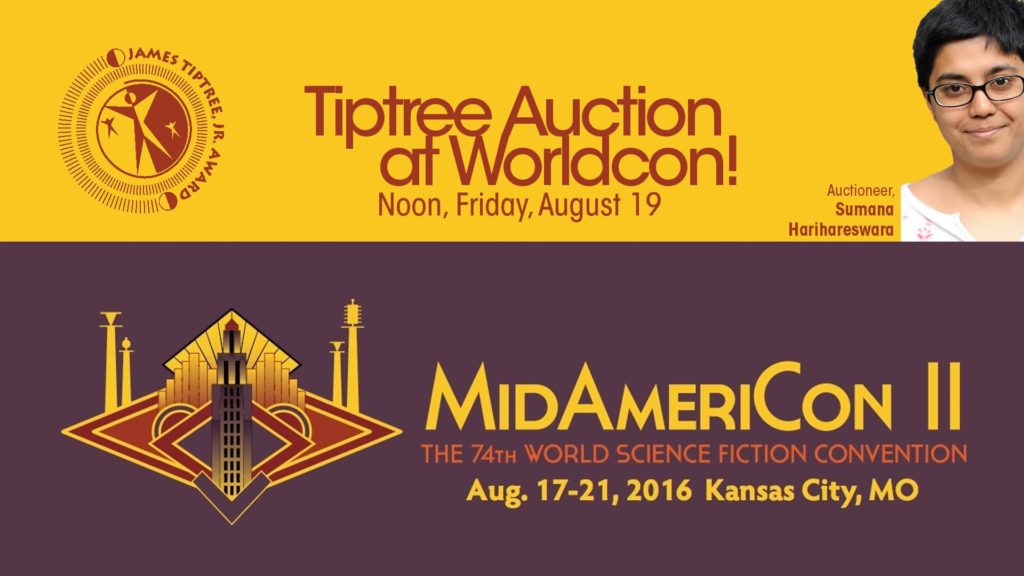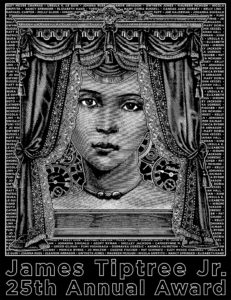After the two Founding Mothers, perhaps no one has been more important to the success and identity of the Tiptree Award than Ellen Klages, whose legendary auctions gave the Award much of its visibility, character, and flair (not to mention raising enough money to keep us going as a stable organization for over 20 years).
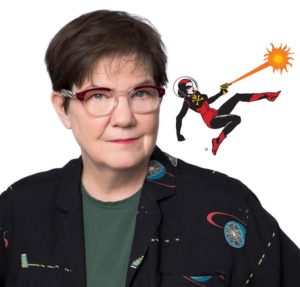
Ellen retired from her auctioneer role in 2015. Now she is taking an open-ended leave of absence from the Tiptree Motherboard.
If you only know Ellen as our take-no-prisoners fundraiser, you’re missing out on some great writing, including her award-winning story “Basement Magic” and her wonderful middle-grade historical novel, The Green Glass Sea. We can’t be too sad about losing Ellen from the Motherboard, since her plan is to concentrate on her own career. That includes a new novella, Passing Strange (tor.com, January 2017), a collection of her recent short fiction, Wicked Wonders (Tachyon, May 2017), and a novel-in-progress. We can’t wait.
Ellen says:
The Tiptree Award changed my life, and brought me friends and a community that I will cherish forever. Don’t think of this as goodbye; I’m not moving on, just shifting a little sideways to focus on my own work. I will continue to offer advice and opinions to the Motherboard, if called upon; to add Tiptree winners to my teetering to-read pile; and even manage to make a few magic objects for the auction!
Ellen, we’ll miss you, but we’re glad you’ll still be around!
